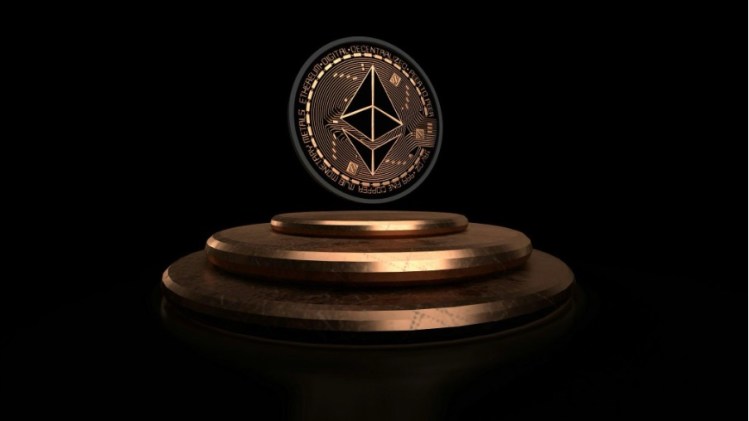Reason to trust

How Our News is Made
Strict editorial policy that focuses on accuracy, relevance, and impartiality
Ad discliamer
Morbi pretium leo et nisl aliquam mollis. Quisque arcu lorem, ultricies quis pellentesque nec, ullamcorper eu odio.
Roam Network unveiled its integration of peaq, the layer-1 blockchain for DePIN, to revolutionize the way mobile network performance is assessed and improved. The groundbreaking collaboration will see Roam Network leveraging as peaq its layer-1 blockchain to provide unprecedented insights into signal strength while rewarding users with cryptocurrency tokens minted natively on peaq. Let’s take a look at how the partnership expands upon peaq’s rapidly growing ecosystem and could potentially transform the telecom industry.
How The Roam Network Will Decentralize Mobile Performance Data
Roam Network’s goal is to transform the mobile network landscape through its mobile-first DePIN, leveraging user data regarding local mobile signal strength. After installing the Roam App, mobile users can earn cryptocurrency rewards in exchange for providing anonymized data that offers insights into the quality of their mobile coverage.
The collected data is invaluable for telecom companies seeking to bolster the quality of their service offered to users. There are added benefits for enterprise customers, who can utilize the collected data to optimize their spending on internet services, ensuring that they only pay for the coverage their employees receive. This is attractive for companies looking to reduce costs and remain efficient.
Roam Network has already amassed more than 5,000 users across 149 different countries since its launch just months ago, making significant progress toward its goal of decentralizing network performance assessment data. Considering the fast growth and momentum, Roam also plans to launch Roam Infra – yet another DePIN that similarly rewards users for helping to improve local mobile coverage using specialized hardware.
Why peaq Was Chosen For Its DePIN Capabilities
peaq is a prominent permissionless and borderless layer-1 blockchain designed to power DePINs across a wide variety of industries. Its ecosystem boasts more than 30 applications across 15 industries, and services over half a million machine RWAs consisting of devices, vehicles, robots, and more. peaq’s goal is to democratize access to technological advancements in the Age of AI and job automation.
Roam Network has chosen the peaq layer-1 blockchain to leverage a variety of benefits that can significantly enhance its services. In particular, Roam Network will rely on peaq’s self-sovereign machine identities, peaq ID. Additionally, Roam will utilize peaq’s on-chain data storage and verification frameworks, while also tapping into peaq’s integration of the Particle Network. The Particle Network will enable users to join the DePIN with email or social media login credentials for added convenience. Finally, Roam’s native cryptocurrency token will be issued on the peaq blockchain.
“A Perfect Solution” To Telecom Companies’ Biggest Challenge
According to Michail Angelovco, founder of Roam Network, peaq’s DePIN model “offers a perfect solution to a challenge that costs telcos and their clients billions every year.” Angelovco explains that critical components of DePIN such as identity management and data verification will allow Roam Network to properly serve the scale of the massive telecom industry. To encourage more participation from users, Roam Network has developed a unique crypto rewards system. We literally turn signal bars into crypto rewards,” Angelovco added.
Calling mobile phones “some of the most ubiquitous devices in the world,” Leonard Dorlöchter, co-founder of peaq discussed how frustrating a weak signal can be. Dorlöchter says that Roam Network combined with peaq’s technology, will alleviate such headaches for mobile users in the future. “It also solves real pain points of real-world businesses, advancing DePIN adoption in the enterprise sector and bringing Web3 at the core of another real-world value exchange,” Dorlöchter added.
Conclusion
The collaboration between Roam Network and peaq signifies a potentially pivotal moment in the telecom industry. Roam Network will leverage peaq’s layer-1 blockchain in an effort to revolutionize mobile performance data collection and reward users for their contributions, thereby decentralizing and democratizing access to valuable network insights.
This collaboration not only enhances peaq’s growing ecosystem but also addresses significant challenges faced by telecom companies, potentially transforming how mobile networks operate and improve their services. As Roam Network continues to expand and innovate, the telecom industry may witness a new era of efficiency and user engagement, driven by cutting-edge blockchain technology and decentralized principles.

















